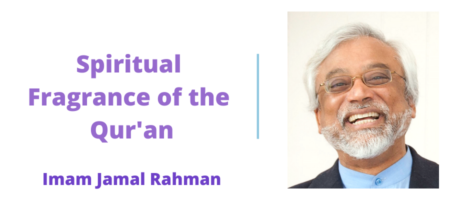“O humankind! We created you from a single pair of male and female persons and made you into nations and tribes that you might come to know each other.” Qur’an 49:13
“O God, You Have created this, I, you, we, they, to play the game of adoration with Yourself.” (Rumi)
The Qur’an is clear about the issue of diversity. God purposely created the human family with diversity, just as the rest of the natural world is filled with an infinite variety of shapes, colors, forms, and manifestations. As human beings, we are enjoined to get to know one another, and to “Strive with one another in doing good: your goal is God” (Qur’an 5:48). The Qur’an also states clearly in dozens of verses that the only aspects of a person that guarantee entrance into the celestial realms after death are “believing and doing righteous deeds.” Nothing else we acquire and no other aspect of our life is more important than these two qualities. These qualities can be developed by anyone, regardless of gender, race, culture, age, religion, class, or any other outer characteristic.
We are instructed to co-exist peacefully with each other, and not enter into arguing with others about spiritual matters. Many times in the Qur’an we are reminded, “God will judge between you on the Day of Resurrection, concerning everything about which you would differ.” (22:69, 32:25, 39:3) The Prophet Mohammad was a beautiful example of this teaching, when he successfully united so many different, previously warring Arabic tribes into peaceful co-existence. When religious leaders came to Medina to meet in council, he invited them to use the Mosque in his compound as their place of worship. “It is simply a place consecrated to God,” he said.
Similarly, the mystic sages of virtually every religious tradition who have reached a state of higher consciousness, and are in a state of truly practicing their religion, universally declare, “I am not a Hindu, nor a Muslim, nor a Christian nor a Jew: I am a lover of God.”
How do we get to know the other? This requires conscious effort and the desire to stretch beyond our own comfort zone. Most of us prefer to be around people who look, act, and believe like ourselves most of the time. This feels more comfortable and affirming. Yet, when we do break out of our “bubble” and explore different cultures, people, places, languages, activities and beliefs, we find our minds expanding and our heart opening. We find areas of commonality such as laughter, music, sports, and dancing. We find ways of communicating that go beyond spoken words. We learn new ways of looking at the world and new ways of responding to the world. We experience new foods, new art forms, new people and new ideas! Finally, when we really “get to know the other” through various activities and interests, we find ways of working together to help others and be of service to God’s creation. This is the best way to feel truly connected with each other on a deep level, and the differences that remain lose their threat or strangeness, and may even become a source of delight.

